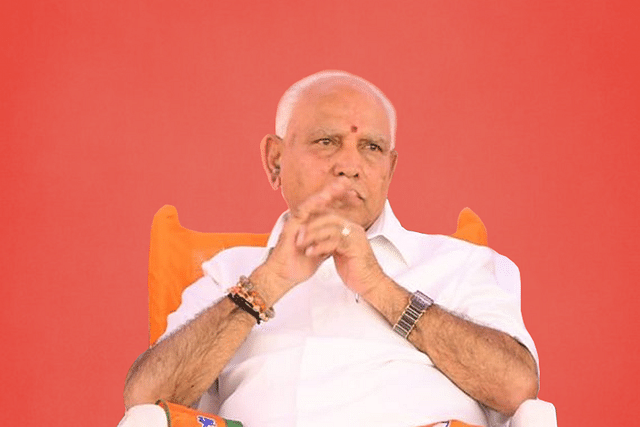
CAA Protest: Yediyurappa Is Right In Putting Compensation On Hold; He Is Only Following What Courts Have Said
Given that the courts have said that rioters be held liable for the damage they cause to property, the state government should establish facts before releasing compensation to those who died in police firing in Mangaluru.
Chief Minister B S Yediyurappa has declared that no compensation shall be paid for now by the state to those who died during the police firing in Mangaluru last week.
Yediyurappa, who had earlier announced a compensation of Rs 10 lakh each to the ‘victims’ of police firing during the anti-Citizenship Amendment Act (CAA) protests in Mangaluru, said none would be paid if they turn out to be ‘accused’.
The coastal city had seen violent protests when Anti-CAA campaigners took to the streets despite prohibitory orders.
Large groups of people began attacking the police, their vehicles, pelting stones and as the situation seemed to go beyond control, the police had to resort to lathi charge and firing. During this face-off, many on both sides were injured while two civilians who were allegedly also part of the protests died.
The death of the two civilians Abdul Jaleel from Kandak and Nausheen from Kudroli added to the unrest in the city. The CM had then visited the town to assess the situation and announced a compensation of Rs 10 lakh each to the kin of the deceased.
This announcement while on one hand was seen as being plain protocol, it saw substantial opposition, especially on social media, with some of the BJP’s own leaders asking the CM to withdraw the compensation.
Prominent among them was BJP MLA Basanagouda Patil Yatnal who (known to make such controversial statements) had not just sought that the CM not compensate the deceased but also said that ‘all those rioting against the country should be shot dead’.
The police officers who had done their best to get the situation in control were also at the receiving end of criticism for ‘firing’ at ‘innocent civilians’. The opposition was quick at seizing this opportunity and demanded a judicial probe into the firing while also holding the ruling party responsible for the deaths.
But for a lay Mangalorean, the sights were unusual to say the least. It was difficult to imagine that such a large quantity of stones could be found in the areas -- not when most of our roads are concrete and the city streets comparatively clean and tidy. It was clear that there was little ‘organic’ about the protests.
The Commissioner of Police, P S Harsha, then sought videos, photos or any other evidence of the events that unfolded that day.
Police now has video footage that clearly shows that stones were transported to the site of violence, a few youngsters were breaking or turning off CCTV cameras installed in public spaces, blocking roads with large poles, and gheraoing police vehicles.
Would we call such a ‘protests’ an organic reaction? Of course not.
If we call ourselves a ‘democracy’, we should allow the law to take its own course. There should be investigations. And there shall be.
As the commissioner had made loud and clear in the immediate aftermath of the protests, it is important to ‘initiate criminal proceedings, prosecute and hold them liable for any damage to public property, peace and tranquility..No one should assume they are anonymous...’. Not in today’s times.
Uttar Pradesh Chief Minister Yogi Adityanath minced no words when he said the state would seize the properties of those who indulged in violence. Those who damaged public property will have to pay for it with their own.
Though it did get it flak from the known critics, and the mainstream media who called it politics of revenge, they fail to see that this is what the courts have dictated too.
A supreme court bench headed by Chief Justice S A Bobde too had earlier expressed its displeasure over ‘rioting and destruction of public property’.
As per an Indian Express report, anyone who ‘commits mischief by doing any act in respect of any public property’ with a jail term of up to five years and a fine or both, under the Prevention of Damage to Public Property Act, 1984.
There are other provisions under the Indian Penal Code too that provide for similar action. The Supreme Court has also plugged certain gaps in the ‘84 act time over time in various cases whereby it has not just instructed holding rioters liable and imposing costs, but also directed High Courts to take suo moto action, as well set up a machinery to probe into the events, assess damage and award compensation wherever mass destruction to property takes place due to protests, as reported.
Given this, it was only right that Yediyurappa keeps the compensation on hold until the investigations are complete. The CM has also ordered a Crime Investigation Department inquiry and announced that any compensation would be decided only after it was complete.
Opposition leaders H D Kumaraswamy and Siddharamaiah have visited these ‘victim’s and handed over cheques of five and ten lakhs to the families on behalf of their parties. But if the state government has to pay out of its treasury, facts must be established first.